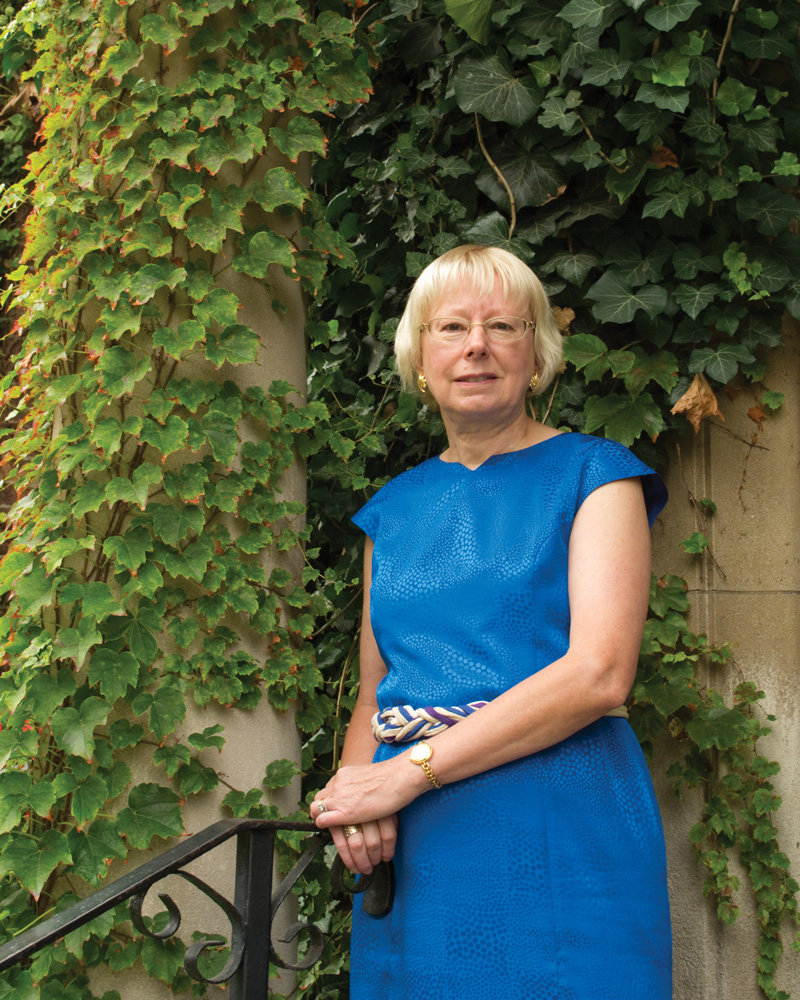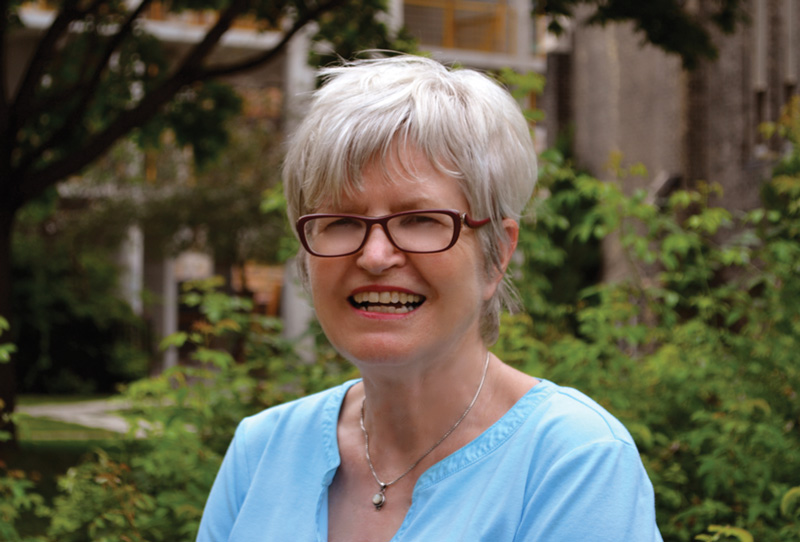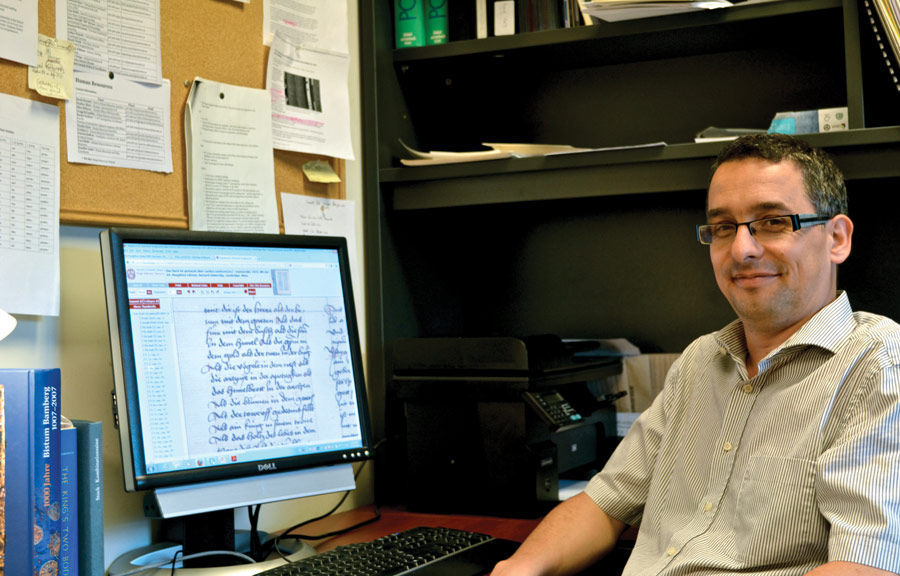
Professor Markus Stock in his office. Photo by V. Shanmuganathan.
Dear Friends of the German Department,
It is a pleasure and an honour to be settling into my new duties and responsibilities as Chair of Germanic Languages and Literatures in the wake of the various initiatives launched during the energetic leadership of Professor John Zilcosky, whom I thank for his work and dedication. We have brought our professors to a wider undergraduate audience by converting some of our English-language seminars into lectures and our cross-listed courses attract students throughout the university. We also recently established Yiddish as a field within our MA program, the only such program in Canada, and are thrilled to welcome our first students this Fall. And we have forged new bonds between our students and our alumni through events such as the interdepartmental b2B backpack to Briefcase series.
Our faculty continue to excel in research and scholarship. Professor Willi Goetschel has been named editor of one of the most respected scholarly journals in our field, Germanic Review, and both Professors John Noyes and John Zilcosky have achieved outstanding successes in external grant competitions, with both securing coveted SSHRC Insight Grants. Zilcosky was also honoured with an extremely competitive NEH fellowship. Our Annual German Studies Symposium, by now well-established in its sixth year, brought together an international cortege of scholars, and faculty and students alike have been active across campus in interdisciplinary working groups as well as presenting at national and international conferences and workshops.
We hope this year‘s newsletter, again produced by faculty editor Professor Angelica Fenner together with doctoral candidate Vasuki Shanmuganathan, will pique your interest in “things German” at the University of Toronto. As you will read in the following pages, thrilling new ventures are in progress for learning beyond the classroom, undergraduate research, and the international experience. With support from the Faculty of Arts and Science Germany/Europe Research and Study Fund, our undergraduate majors have participated in a bi-national student conference in Germany and also had the rare opportunity to examine original artefacts and manuscripts in German libraries and museums. They have excelled as prize-winning emerging researchers, and have honed their German skills and dramatic talents in a successful production by the German Drama Club. With Curriculum Renewal Initiative funds secured from the Faculty of Arts and Science by our tireless Undergraduate Chair, Professor Christine Lehleiter, we have remodelled our Business German minor to include a stimulating new course, “Money and Economy in German Literature and Culture.”
Both external financial support and the personal participation of alumni, emiriti, and community members remain vital to our program, particularly in the face of constrained resources within the University of Toronto, as across the province. You will find profiled in this newsletter one of our active supporters, alumna Joan Andersen, former Assistant Vice-President of Human Resources with Honda Canada, whose leadership and initiative were crucial to the success of both b2B (backpack to Briefcase) events launched last year. We are also grateful for the generosity of a donor who recently stepped forward to establish an undergraduate scholarship fund that will help us to draw the best and brightest to our department. Please continue to keep these and other forms of support in mind. I also invite you to come to our many events in the coming year and to connect in this and other ways with the Department.

Markus Stock
Associate Professor of German & Medieval Studies
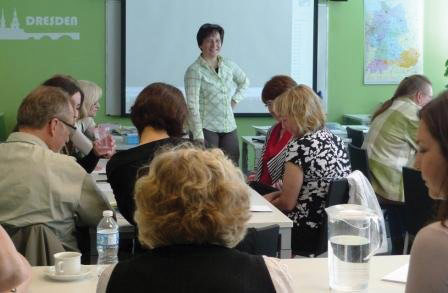
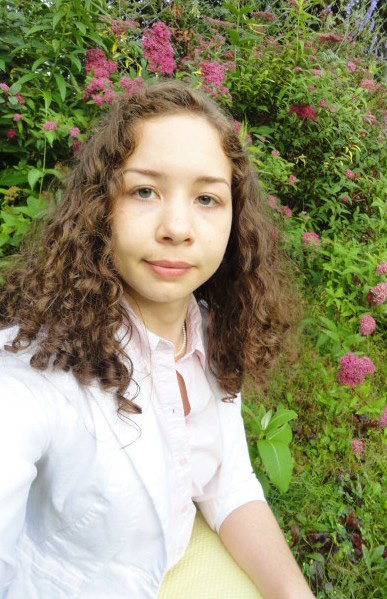
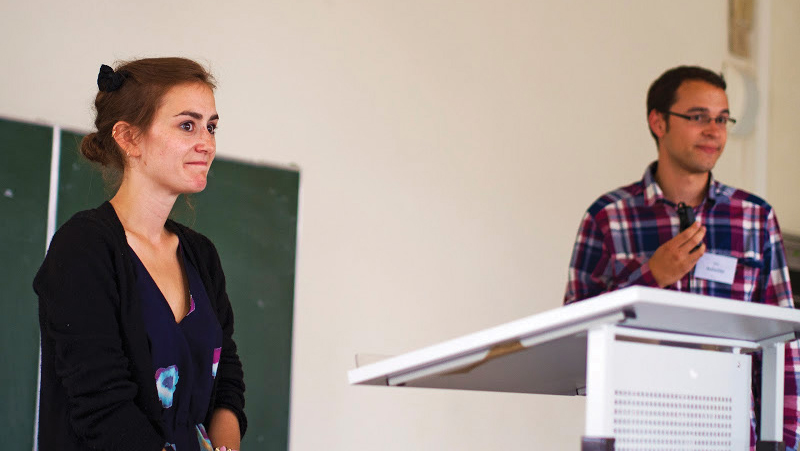

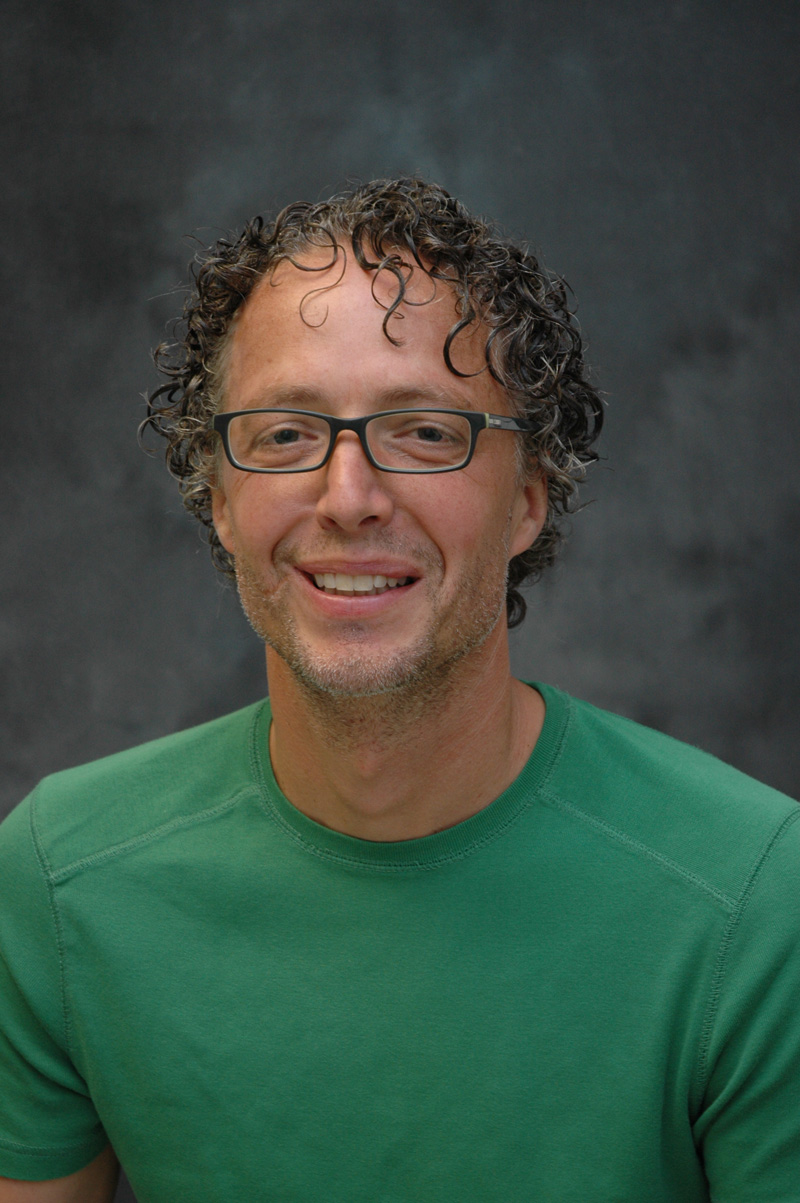
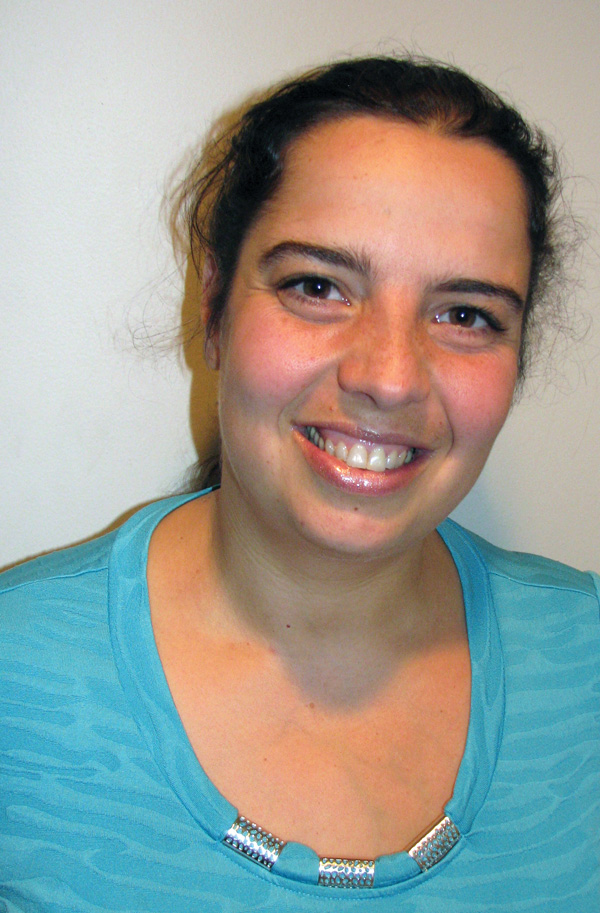
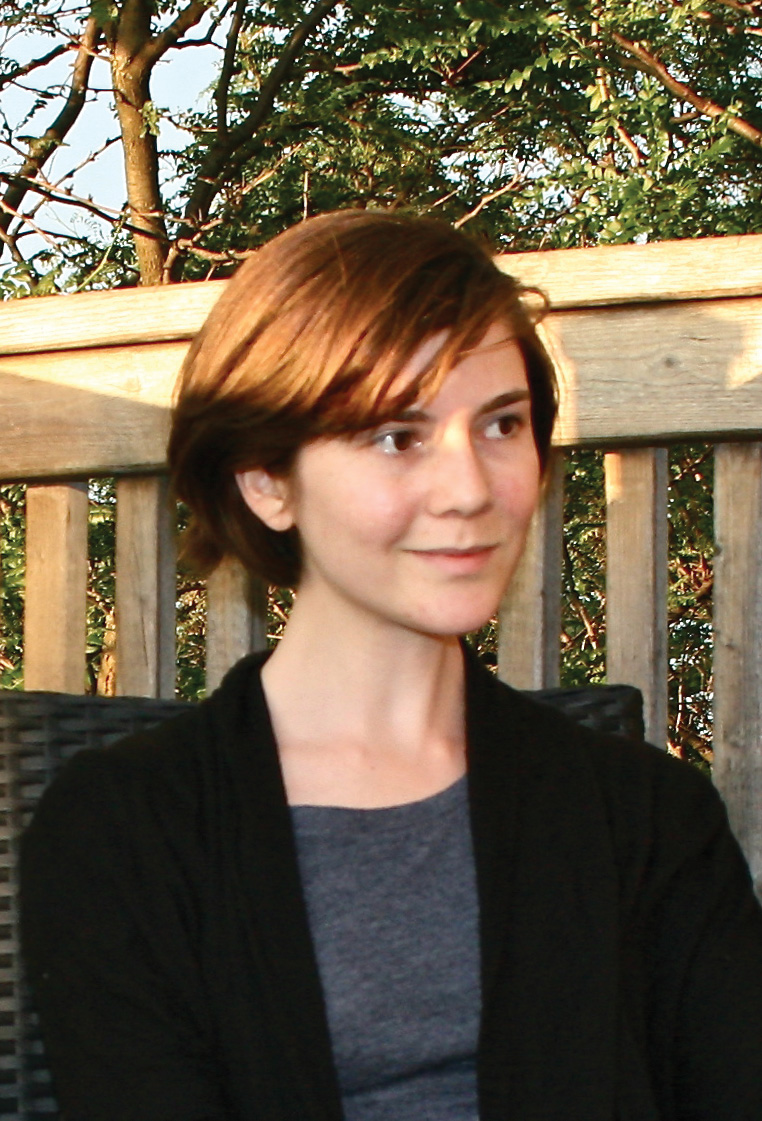
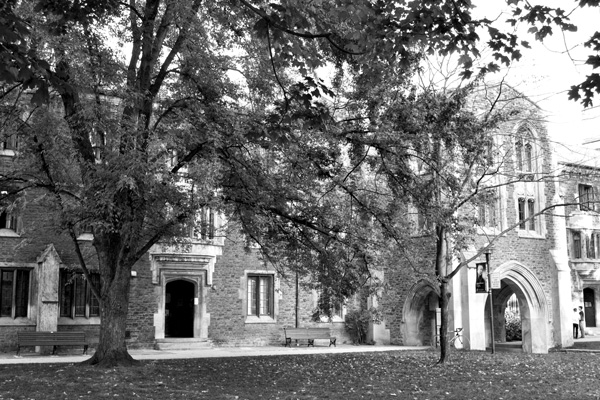
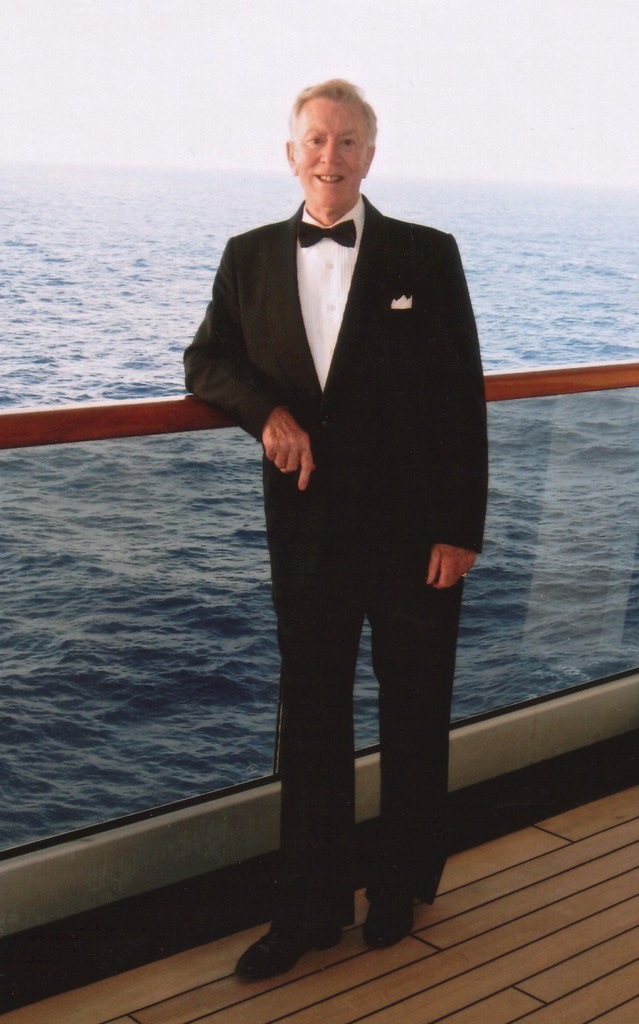
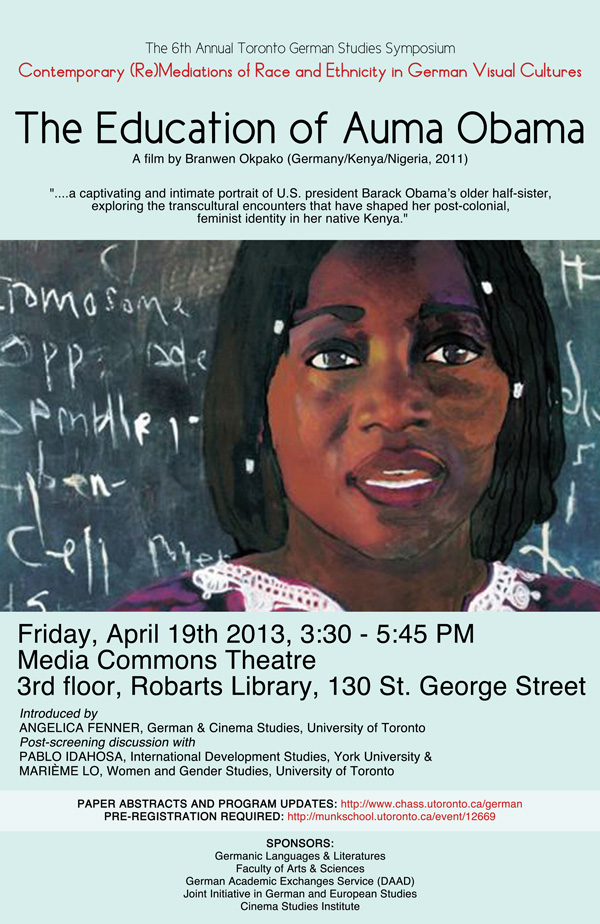
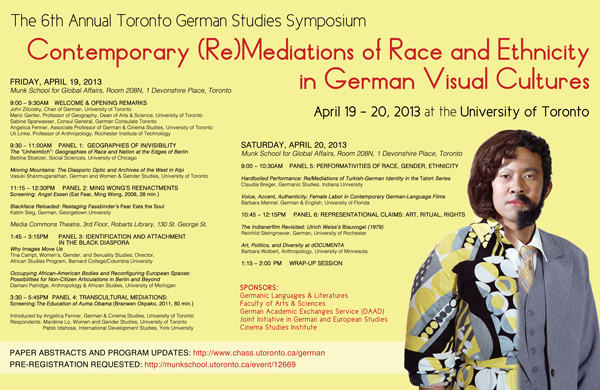 The event was crowned by a public screening of The Education of Auma Obama
(2011), Branwen Okpako’s portrait of the Kenyan social activist and half-sister
of U.S. President Barack Obama, who lived in Germany while earning a PhD
in Linguistics from Bayreuth and also studied filmmaking at Berlin’s German
Film and Television Academy (DFFB). Local faculty Marième Lo (Women and
Gender Studies) and Pablo Idahosa (International Development Studies, York
University) provided ensuing thoughtful commentary. A reception rounded
out the day amidst delectable Moroccan cuisine and select Gewürztraminer.
Lengthier versions of the symposium papers, co-edited by Professors Fenner
and Linke, will be forthcoming in the online journal Transit: A Journal of Travel,
Migration, and Multiculturalism in the German-speaking World in Spring 2014.
The event was crowned by a public screening of The Education of Auma Obama
(2011), Branwen Okpako’s portrait of the Kenyan social activist and half-sister
of U.S. President Barack Obama, who lived in Germany while earning a PhD
in Linguistics from Bayreuth and also studied filmmaking at Berlin’s German
Film and Television Academy (DFFB). Local faculty Marième Lo (Women and
Gender Studies) and Pablo Idahosa (International Development Studies, York
University) provided ensuing thoughtful commentary. A reception rounded
out the day amidst delectable Moroccan cuisine and select Gewürztraminer.
Lengthier versions of the symposium papers, co-edited by Professors Fenner
and Linke, will be forthcoming in the online journal Transit: A Journal of Travel,
Migration, and Multiculturalism in the German-speaking World in Spring 2014.
